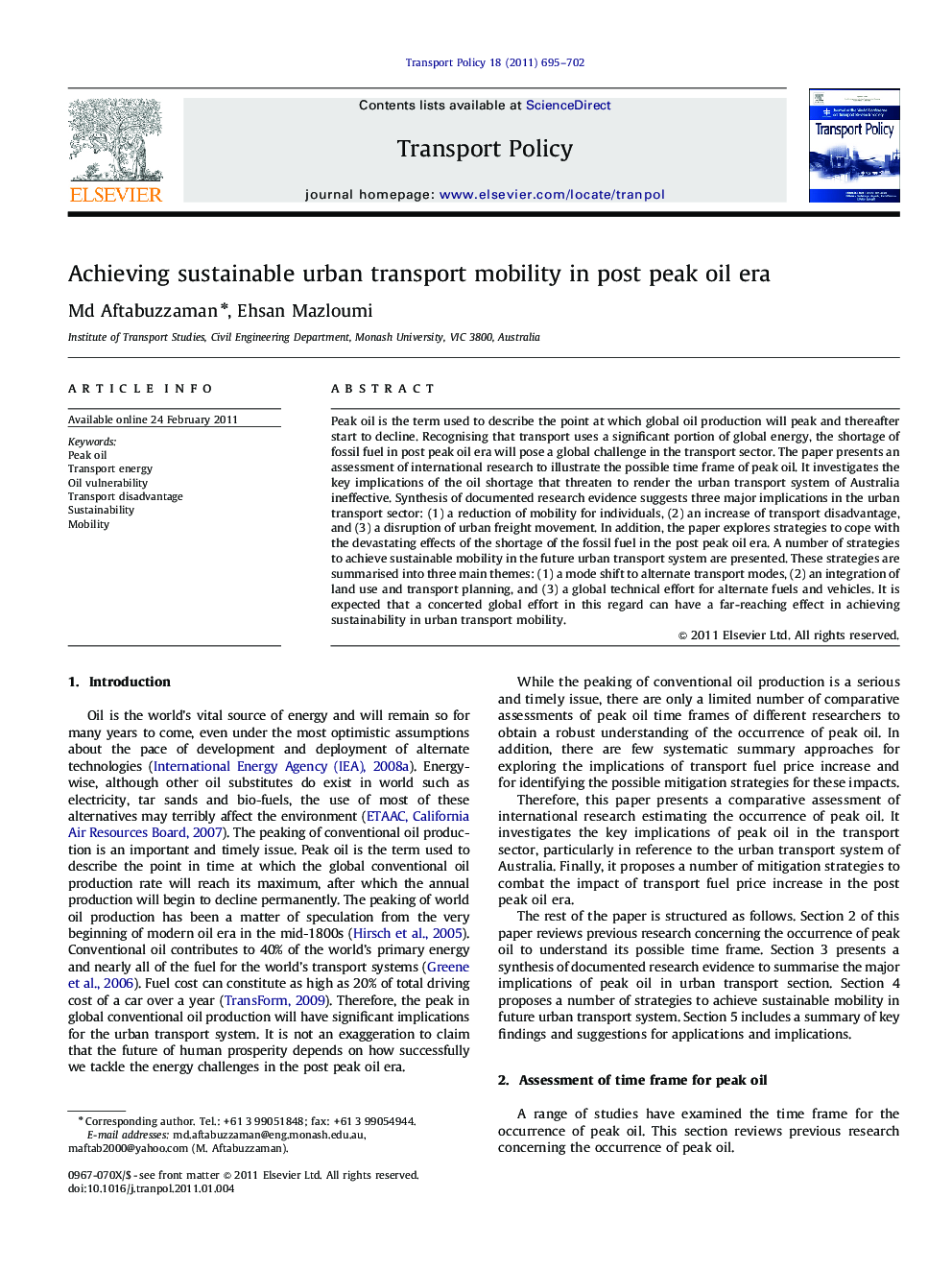| Article ID | Journal | Published Year | Pages | File Type |
|---|---|---|---|---|
| 1065116 | Transport Policy | 2011 | 8 Pages |
Peak oil is the term used to describe the point at which global oil production will peak and thereafter start to decline. Recognising that transport uses a significant portion of global energy, the shortage of fossil fuel in post peak oil era will pose a global challenge in the transport sector. The paper presents an assessment of international research to illustrate the possible time frame of peak oil. It investigates the key implications of the oil shortage that threaten to render the urban transport system of Australia ineffective. Synthesis of documented research evidence suggests three major implications in the urban transport sector: (1) a reduction of mobility for individuals, (2) an increase of transport disadvantage, and (3) a disruption of urban freight movement. In addition, the paper explores strategies to cope with the devastating effects of the shortage of the fossil fuel in the post peak oil era. A number of strategies to achieve sustainable mobility in the future urban transport system are presented. These strategies are summarised into three main themes: (1) a mode shift to alternate transport modes, (2) an integration of land use and transport planning, and (3) a global technical effort for alternate fuels and vehicles. It is expected that a concerted global effort in this regard can have a far-reaching effect in achieving sustainability in urban transport mobility.
Research highlights► The determination of global peak oil production is an extremely complex summation problem. ► The most optimistic estimate of peak oil is 2030 while the pessimists assume it has already occurred. ► The peaking of oil will impose an enormous impact on the current energy and economic environment. ► A number of strategies have the potential to mitigate the impacts of transport fuel price increase.
